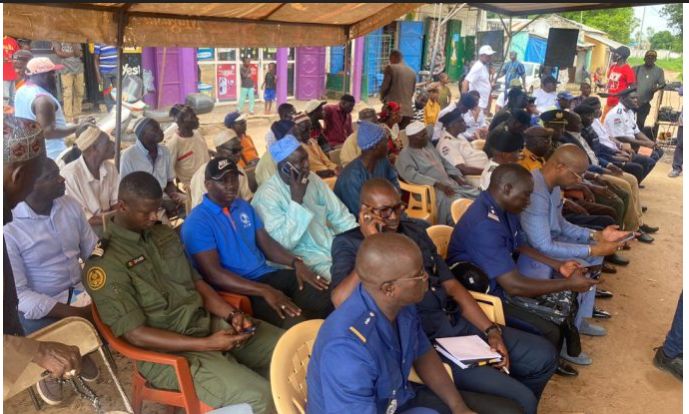World
No Practical Implementation of ECOWAS Free Movement Protocols in West Africa — Citizens

By Angel-Linda Ike
The Economic Community of West African States (ECOWAS) citizens in The Gambia said there is no practical implementation of the free movement protocol in the region.
The President of ECOWAS citizens in The Gambia, Michel Koivogui, disclosed this in The Gambia on Tuesday on the sideline of a public hearing with stakeholders on the protocol on free movement, Rights of Residence and Establishment as part of the meeting of the joint committees on Social Affairs, Gender and Women Empowerment, Legal Affairs and Human Rights, Political Affairs, Peace, Security and African Peer Review Mechanism (MAEP), Legal and Human Rights, Trade Customs and Free Movement.
Recognising that free movement is essential to the achievement of regional integration, the ECOWAS Member States adopted, on 29 May 1975, the Protocol on the Free Movement of Persons and the Right of Residence and Establishment in the Region.
five decades now, the leader of ECOWAS citizens in The Gambia said movement across borders within the West African subregion is still very difficult, lamenting that community citizens were being extorted at borders by security operatives.
“I am very happy to meet the members of the ECOWAS parliament on the ground. This is because a lot of things have been going on on the ground that they are not aware of.
“We talk about free movement, we hear about free movement but we can say that there is no free movement between the ECOWAS states.
“When you want to cross the borders, they will collect money from you even if you have all your travel documents with you. If you refuse, they will force you out of the vehicle and ask the driver to go.
“So, we have cases where the drivers leave the passengers and go simply because they (passengers) refuse to give security officials money.
Koivogui, who disclosed that receipts were never issued for such illegal payments, called for more sensitization by the ECOWAS at the community level.
“I want the ECOWAS to organize more awareness programmes on ECOWAS protocols both for the citizens and the officers because we realized also that some officers at the borders don’t even know the protocols of ECOWAS,” he said.
He said when the ECOWAS citizens are well-informed, it would be harder for security agents to extort them at the borders.
Other stakeholders, including representatives of Chambers of Commerce and Industry, transport unions, market unions, market women associations, trade unions and labour unions, all echoed Koivogui’s sentiments.
Speaking during the session, Edwin Melvin Snowe Junior, Co-chair of the Joint Committee, said the town hall meeting was to aggregate the opinion of citizens on the implementation of the free movement protocol of the regional bloc.
He assured that all complaints and suggestions would be taken into consideration in finding ways to best implement regional protocols especially as it concerns free movement.
